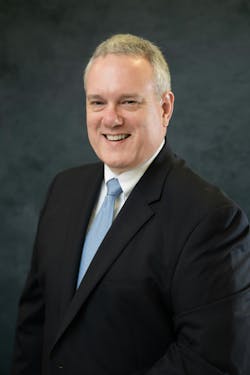This is the story of an Indiana court that broadly applied a delay damages waiver to claims for delays, accelerations, and changes. Luse Thermal Technologies, LLC v. Graycor Industrial Constructors, Inc., et al., 221 N.E.3d 701 (Court of Appeals of Indiana, Oct. 16, 2023).
A contractor was engaged to construct a portion of a crude oil refinery for $385 million near the shores of Lake Michigan in Indiana. A subcontractor agreed to perform insulation and lagging work for the project. The subcontractor’s work occurred in two phases, one early in the project and the second phase near the end of the project after most other trades had completed their work. The subcontract included a No-Damage-for-Delay (ND4D) clause stating:
“Other than to the extent the contractor receives compensation from the owner or any other entity responsible for [delays], the contractor shall not be liable to the subcontractor for any damages whatsoever that may be suffered by the subcontractor . . . on account of any acts or omissions on the part of (a) the contractor or those for whom it is responsible, . . . or (d) any other entity that may arise from or are in any way related to the project or the work. The subcontractor further agrees: (i) any such delay, other than to the extent compensation is otherwise provided in this Subcontract, shall be fully compensated for by an extension of the time to complete performance of the work. ...”
Delays caused by other trades pushed the subcontractor’s work from more productive summer months to harsh winter conditions. The contractor demanded the subcontractor meet the original completion deadline (i.e., constructive acceleration) while asking the subcontractor to provide an estimate for the cost to increase manpower and work overtime. The subcontractor submitted an estimate for the extra costs and completed the work with more manpower and extra shifts to meet the original deadline.
The court summarily denied the subcontractor’s claim for delay damages under the express terms of the clause. The subcontractor tried to avoid the harsh result of the ND4D clause by arguing its damages were not delay damages, but acceleration damages describing them as extra costs incurred to change the manner of performance to meet the original completion deadline, which are different from extended duration costs to perform the same scope of work took over a longer period of time. Although related to the duration of performance, increasing manpower and shifts was a change in the work, not delay damages.
However, the court reasoned that because the extra manpower and shifts were needed because of or caused by delays (even though the delays were not caused by the subcontractor) the same ND4D clause precluded acceleration damages. The court reasoned that absent a signed change order, the subcontractor was not entitled to recover under the changes clause, which would have been allowed under the ND4D language stating, “to the extent compensation is otherwise provided in this Subcontract.”
Any sort of written directive by the contractor to the subcontractor to increase manpower and work overtime may have sufficed, but there was no indication of any express or written directive from the contractor. Short of that, the subcontractor could have confirmed in writing the contractor’s implied directive to constructively accelerate, but there is no indication in the court’s opinion that this was done.
Finally, the subcontractor argued that the contractor and owner should not be unjustly enriched. Thanks to the subcontractor’s efforts, the project was timely completed, and the higher tier parties were using and enjoying the fruits of the subcontractor’s labor. Unjust enrichment is an equitable remedy based on principles of “fairness.” However, as in a growing minority of jurisdictions, there can be no equitable recovery when the parties have agreed to a promise or set of promises that the law will enforce (i.e., a contract). In this case, fairness was whatever the subcontract dictated. RB
About the Author

Jon Straw
Jon Straw is a partner with Kraftson Caudle, PLC, a law firm in McLean, Va., specializing in heavy-highway and transportation construction. Straw can be contacted via e-mail at [email protected].
